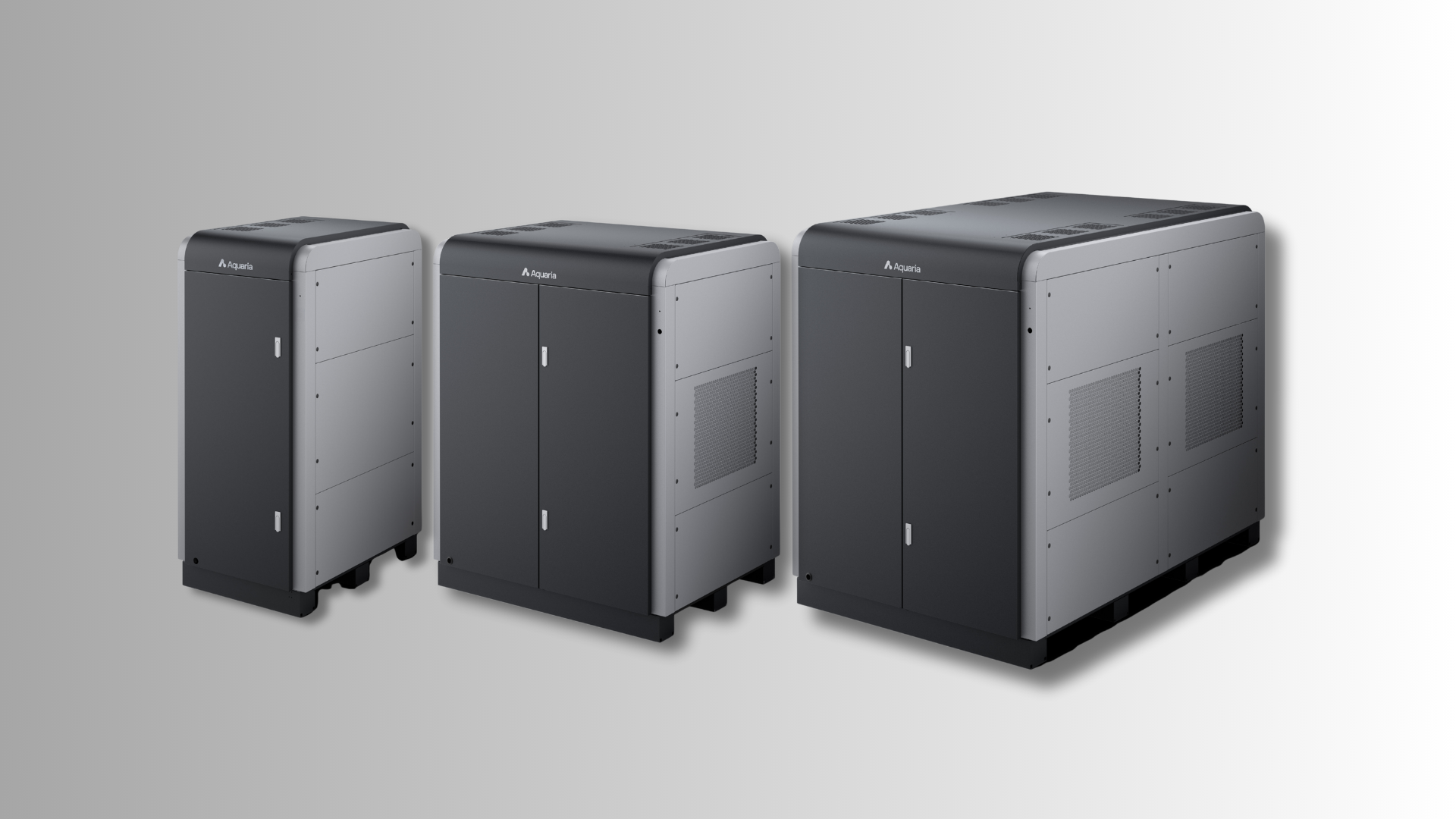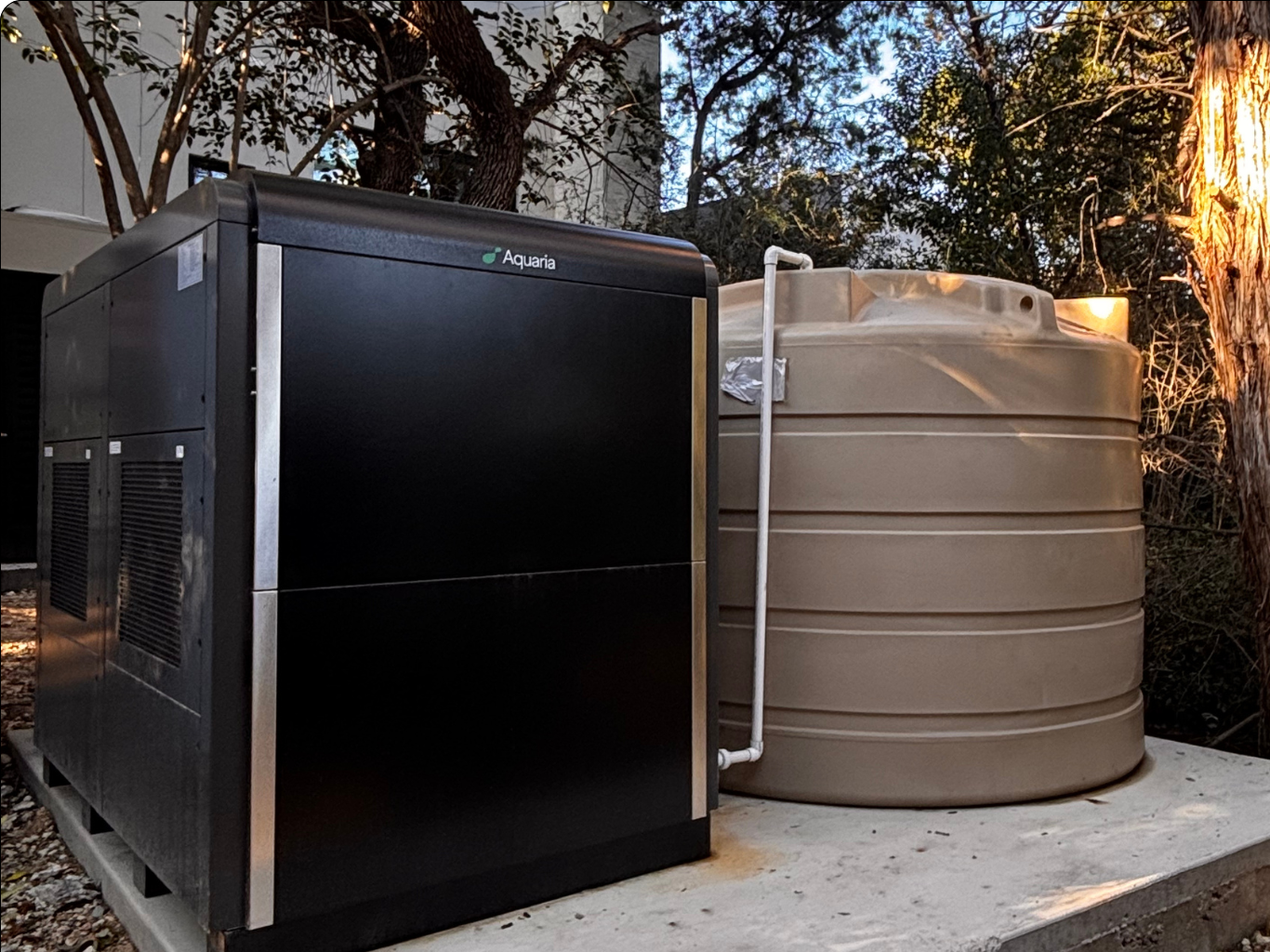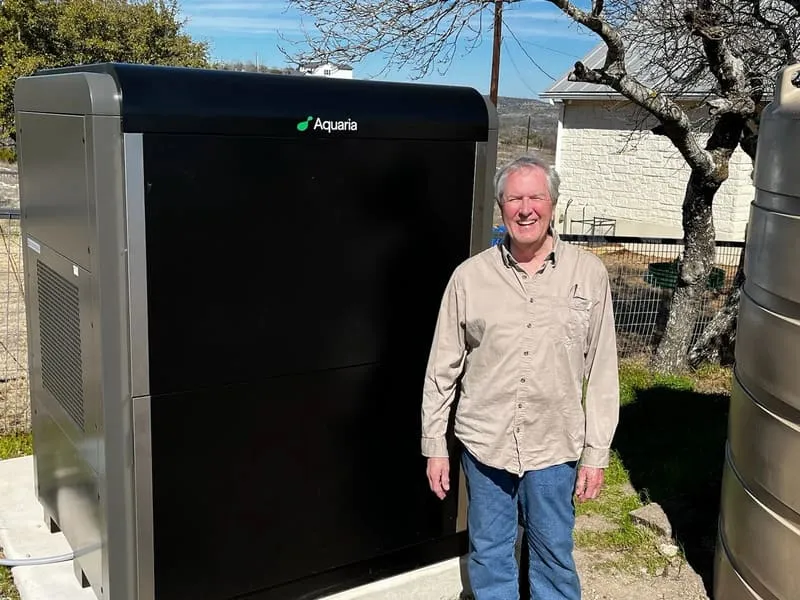Chat with Aquaria
Interested learning more about our products? Call or text us and we’ll connect you with the right product expert.
Interested learning more about our products? Call or text us and we’ll connect you with the right product expert.
.png)
Atmospheric water generators (AWGs) create clean drinking water by extracting moisture from air humidity. Two technologies dominate: mechanical systems that cool air below its dew point, and desiccant materials that absorb moisture. Mechanical AWGs lead the market with superior energy efficiency and production volume, delivering filtered water that's naturally cleaner than groundwater or rainwater.

Atmospheric water generators (AWGs) are revolutionizing how we access clean drinking water, from homes to disaster zones. Whether you need 10 gallons daily for an office or 5,000+ gallons for emergency response, there's an AWG solution designed for your scale.

An Austin homeowner built a fully resilient home with solar, batteries, and a Hydropack that produces clean water from humidity. Here’s how atmospheric water generation is becoming the new standard for Texas households facing drought and infrastructure failures.

With wells drying up and rain less reliable, Boerne homeowner Brian Schewe turned to Aquaria’s atmospheric water generator for a sustainable, off-grid water backup. As featured on KSAT 12, his story reflects why more Texans are rethinking how they get water.
For as little as $0 upfront.